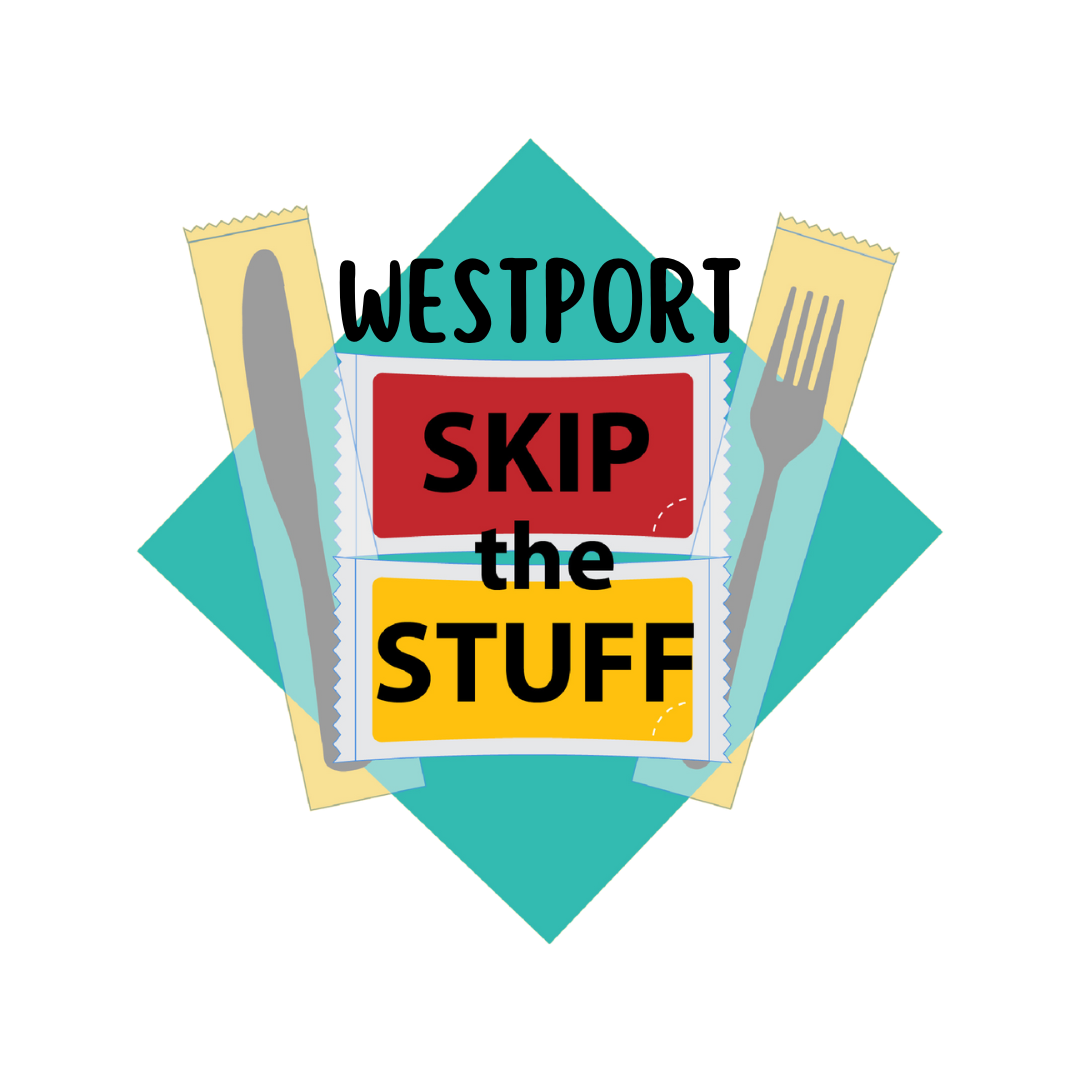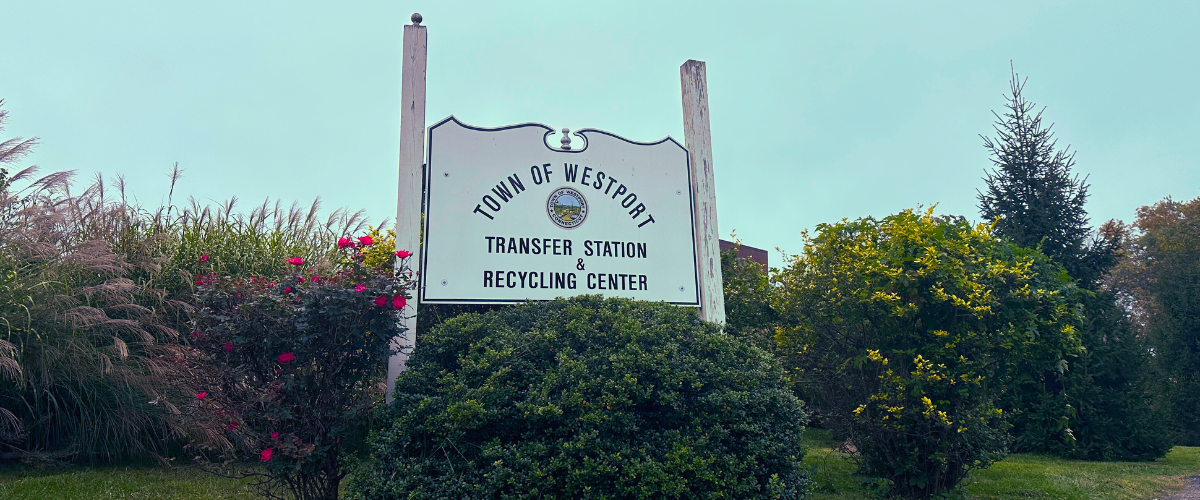 Sustainable Westport is proud to partner with the Town of Westport, The Westport Farmers Market, the Westport Downtown Association, and the Westport/Weston Chamber of Commerce to encourage our community to #SkipTheStuff to reduce unnecessary takeout waste from our favorite local restaurants.
Sustainable Westport is proud to partner with the Town of Westport, The Westport Farmers Market, the Westport Downtown Association, and the Westport/Weston Chamber of Commerce to encourage our community to #SkipTheStuff to reduce unnecessary takeout waste from our favorite local restaurants.
What is #SkipTheStuff? #SkipTheStuff is a national policy campaign that aims to enact legislation that will require restaurants to “ask first” before adding unnecessary “stuff” to orders. Believe it or not, Westport actually already has an ordinance in place that prohibits food service establishments from including “stuff” in orders without request.
The Town of Westport, as represented by the Conservation Department, reintroduced the 2019 Single-Use Plastics Ordinance in January 2024 to encourage both food service establishments and residents to support its efforts.
Westport, together we can eliminate unnecessary waste by participating in this simple yet effective nationwide program. How do you #SkipTheStuff?
Only Ask for What You Need: When ordering, let the restaurant know you support #SkipTheStuff, and only ask for the single-use or disposables you truly need. At the same time, don’t expect food service establishments to provide you with “extras” or “stuff” – legally, they should not be included in your order!
Invest in Reusables: Knowing that food service establishments will no longer provide disposable items like utensils, invest in reusable travel utensils to bring with you.

Sustainability Tip: Understand Composting and Recycling Rules for Alternative Materials
Now that food service establishments are transitioning away from single-use plastics to alternative materials, it’s important to understand how to dispose of them.
Compostable and/or BPI-Certified Materials: The Westport Transfer Station food scrap collection does NOT permit compostable service ware. Commercial food scrap haulers only accept the service ware if it is BPI-certified.
When in Doubt, Throw it Out: As food service establishments transition from plastic to other materials, it can be difficult to determine if items can be recycled, composted, or trashed. Unless you are absolutely certain of the material, it’s best to place these items in the trash. For example, some plant-based plastics (that cannot be recycled but can be composted) can be easily confused with traditional clear plastics (that can be recycled but not composted). If you are unsure, you can always ask the food service establishment how to dispose of the “stuff” in your takeout order.

Every year, billions of unused straws, utensils, napkins, condiment packets, and other accessories are included in take-out and delivery orders and just thrown away.
- In the U.S., 561 billion disposable food service items are used every year, resulting in 4.9 million tons of waste.
- Americans use more than 36 billion utensils each year, enough to wrap around the Earth 139 times.
- Straws and stirrers were the 3rd most common beach litter items during the 2019 International Coastal Cleanup. Americans use as much as 142 billion straws each year.
- Restaurants spend billions of dollars on disposable items each year. Most of which is never wanted or used. Reducing the amount of these items in circulation also saves taxpayers money by lowering waste management costs and eliminating a common cause of litter.
- Napkins and other paper products come from trees and require significant water to produce. Cutting trees propels the climate crisis and destroys habitat in the midst of the planet’s 6 mass extinction of species.
- Production of plastic emits greenhouse gases and harms communities near oil and plastic production and waste incineration facilities.

About the Town of Westport’s Single-Use Ordinance
The Town of Westport, as represented by the Conservation Department, is reintroducing the 2019 Ordinance prohibiting the use of single-use plastics/styrofoam materials in food service businesses. Under the ordinance, all “single-use plastic food service products,” including, but not limited to, food containers, straws, stirrers, plates, clamshells, cups, trays, and egg cartons, made primarily of plastic (including blown polystyrene and expanded and extruded foam) are prohibited. Acceptable alternatives under the ordinance include PLA (“bioplastic” made of polylactic acid), paper, bamboo, palm leaf, aluminum, and other single-use food service products that are not primarily plastic.
Are you a business owner looking for information about this ordinance? Visit the Town of Westport’s Conservation Department webpage.
